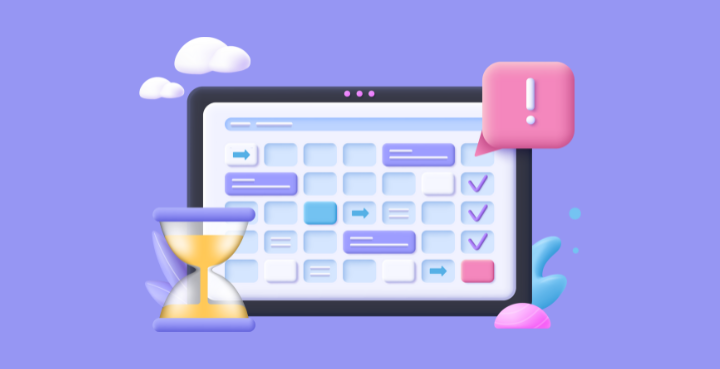Understanding Accounts Payable software: A complete guide
Aug 2024

Accounting software is key for supporting business growth.
It helps you document, scale and optimise your ap processes.
One application of the software that’s especially useful is Accounts Payable automation software. An ap automation solution will automate tasks to save your team time and make processes more efficient.
Accounts Payable software has a number of positive benefits. The key is to ensure these outweigh the investment required both in money and time spent to implement and adopt.
This post will cover what Accounts Payable software is, how it works and how to determine the best option for your business.
What is an Accounts Payable software?
Accounts Payable software helps streamline processes. The most common use case is automating invoice management and payments to suppliers or vendors.
Accounts Payable automation software takes ap tasks that are usually manual and error prone and automates them.
These automations cover a range of tasks across every step of the ap process. Going beyond automating invoice processing, there's a range of other use cases. These include supplier statement reconciliation and real-time transaction auditing. Ap software can also help respond to a vendor invoice query, clean master vendor data and optimise reporting so you and your ap department have full visibility.
What are the benefits of using Accounts Payable software?
With Accounts Payable Software, you can monitor, optimise and scale your processes more easily. Benefits include documented audit trails, working form a single source of truth, ensuring maximum security and governance, and more.
In the case of ap automation software, your team can spend less time on tedious or time-consuming tasks and more time on value added tasks to progress them or your business forward.
When purchasing ap software, you should consider ease of use, how it integrates with your current tech stack and how soon you’ll see value or ROI.
How does AP software integrate with other financial systems?
Integration can vary depending on the ERPs and systems you currently use. It can also differ depending on the kind of integration you go for, such as a full integration, one-way sync or something like bolt-on. You should also consider whether it's cloud or web-based software or on prem. This decision depends on the extent to which you want to integrate your systems. Take the difference between a full integration and bolt-on software, for example.
A bolt-on AP software is a standalone software that can be added on to an existing system or software. This type of software typically isn't fully integrated with your core accounting system and may be a one-way sync via a SFTP data feed or API connection. On the other hand, full integration involves fully connecting Accounts Payable software and the core accounting system.
It's important to factor in how many resources you want to devote to integrating your systems and how you currently access data. Something to consider is whether your ap software provider has an implementation team who can help with the transition.
Integrating with other systems ultimately leads to smarter financial management. You’ll have greater visibility with a single point of truth and encourage collaboration across teams.
What are the common challenges of AP software implementation?
Common challenges of Accounts Payable software implementation include lack of user adoption within teams, integration issues with existing systems, data accuracy and security concerns and concerns and change management. In particular, if the software is difficult to learn or requires a lot of support from its vendor, it's less likely to implement successfully.
One way to overcome these challenges is to look for providers who offer a trial POC. During the trial, you can can test ease of use and the power of the platform. It’s considered best practice when it comes to change management to include your team the trial period to ensure they feel part of the decision and are happy with the ap software.
What are the compliance requirements for AP software?
Accounts Payable software should comply with financial regulations like SOX, GDPR and HIPAA. You'll need to ensure data security, privacy and integrity with features like audit trails, role-based access control and encryption. Additionally, the software should adhere to industry standards such as PCI DSS for payment processing.
Compliance also requires transparent information. You'll need to keep accurate records, manage vendor information securely and facilitate transparent reporting for audits.
When deciding on the right software for your team, these are the questions you should be asking around compliance.
What are the KPIs for Accounts Payable software?
Some examples of Key Performance Indicators (KPIs) you can use to measure the performance of Accounts Payable software are:
Software success:
- Time to implement
- Time to value
- Usage
- Number of support tickets/blockers
- Revenue enhancement
- Cost reduction
- Cost avoidance
- Capital reduction
- Capital avoidance
Process improvements, comparing previous state with current state (equipped with AP software):
- Percentage of invoices with exceptions, also known as Exception rate
- Accuracy of payment processing, also known as payment error rate
- Invoice approval cycle time
- Invoice processing time
- Invoices paid on time
- Average cost per invoice
- Invoices processed per FTE
- Touches per invoice
- Percentage of discounts captured
Monitoring KPIs such as these helps assess the efficiency, accuracy and cost-effectiveness of the Accounts Payable process and ap department.
What are the trends in AP software technology?
Because growth is a top priority for all businesses, some key trends revolve around AI automation to scale efficiently. The first ap processes to see the implementation of AI tend to be within invoice automation, such as invoice processing or optimising an approval workflow.
Any growing business also comes with a growing tech-stack. This means other key trends have to do with integrating Accounts Payable software with other financial management tools.
The easier it is for software to integrate with existing systems, the easier it is to focus on business growth.
Additionally, there's a growing focus on security and compliance to protect sensitive financial data and meet regulatory requirements. Advanced reporting and analytics and AI automation are trends in the accounts payable software space that allow businesses to keep up with compliance when it comes to Accounts Payable software.
The future of Accounts Payable software is a move towards smarter, more integrated and automated solutions to enhance productivity and accuracy in financial operations.
What are the benefits of using AI in Accounts Payable software?
The benefits of AI-powered Accounts Payable software include:
- increased efficiency through accurate automation of repetitive tasks
- time back due to improved accuracy in data extraction and invoice processing
- reduced errors with advanced matching algorithms
- enhanced visibility into financial processes with real-time reporting and analysis
- faster approval workflows
- cost savings from minimising manual intervention and optimising payment processes
AI-driven Accounts Payable solutions streamline operations, enhance decision-making with data insights and ultimately create more efficient financial management for organisations.
Xelix is an AI-powered software that bolts onto your finance systems to enhance ap controls, automate tedious tasks and deliver meaningful insights using five different modules.
Our modules
Statements - Automate the tedious task of statement reconciliation.
Transactions - Prevent and correct an incorrect payment or a duplicate payment in the moment.
Helpdesk - Manage and resolve vendor queries with Generative AI. Whether you need to approve a vendor payment or simply respond to an email, Helpdesk simplifies your ap process.
Vendors - Proactively cleanse, secure and optimise your vendor master data
Reports - Build P2P reports with ease and give your ap department more visibility.
What is the best Accounts Payable software for large enterprise businesses?
The best Accounts Payable software is different depending on the needs of your business. For example, enterprise businesses have distinct requirements compared to small businesses when selecting accounts payable software. For enterprise businesses, scalability is crucial to handle a high volume of transactions efficiently. They typically need advanced features like automated approval workflows, integration with other systems, robust reporting and analytics capabilities and customisable permission settings to streamline complex processes.
Overall, accounts payable software for enterprise businesses needs to be flexible, customisable and capable of handling large-scale operations. At the same time, they need to ensure accuracy, efficiency and compliance with stringent corporate policies and regulatory requirements.
Check out our article on the best 13 Accounts Payable software solutions to weigh up different providers depending on your own business' priorities.
How do you choose the right Accounts Payable software for your business?
When choosing an Accounts Payable software for your business, these are the key questions to consider:
- Can the software scale with you as you grow?
- How does the software integrate with existing systems and how fast can you get time-to-value?
- How user-friendly is the ap software and will your team be able to adopt to it?
- Which automation features can streamline which ap processes?
- How customisable are approval workflows?
- How sophisticated and interactive are reporting functionalities?
Once you've researched whether the software will match your business needs, you can start to see other kinds of software in action. Request demos and get recommendations from others in your industry who have used these kinds of software before so you know how they work in practice, not just in theory.
Starting with a comprehensive set of goals, you can make an informed decision that aligns with your business and helps your Accounts Payable operations run better.
With Xelix, you can be up and running in less than four weeks. Our software is easy to implement, and you'll see ROI from day one. Once you're up and running, our dedicated customer success team will make sure you're supported every step of the way.
Get started in your AP software journey
It might appear difficult to know where to start when it comes to implementing Accounts Payable software. It doesn't have to be.
With clear objectives, thorough research and a team effort, your ap processes will be their most efficient yet.
Content that may catch your eye
.png?length=720&name=How%20to%20prepare%20for%20your%20year-end%20Accounts%20Payable%20audit%20%20(4).png)
.png?length=720&name=AP%20Arms%20-%20Episode%209%20-%20Paul%20S%20(1).png)
